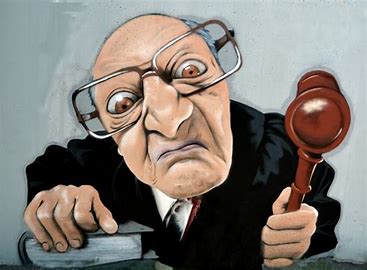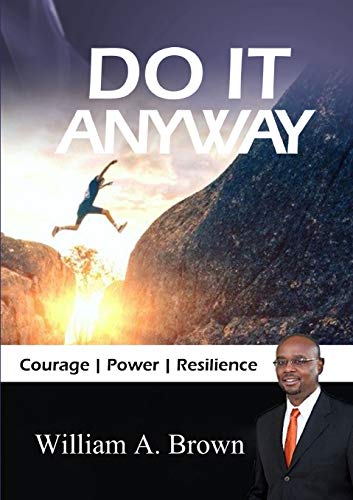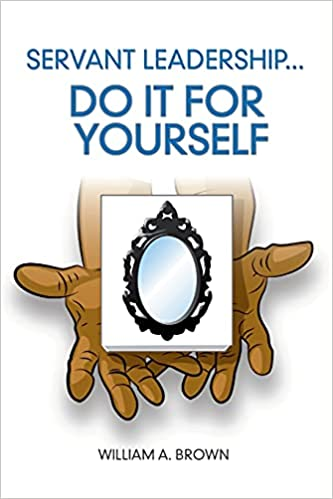Article-Detail

Judge for Yourself
“When you judge another, you do not define them, you define yourself.” - Wayne Dyer
In my career, I’ve had the blessing and curse of serving in school districts in vastly different communities. I’ve had a number of jobs and have had the opportunity to meet people and learn things I never would have had I stayed in one place my entire career. One of the things that I’ll never get used to is the judgement that leaders apply to people on their own teams. Judgement, the way I use the word here, is criticism with the purpose of diminishing people. Some use the term gossip to describe the negative talk leaders subject their people to.
I got a text last week from a former colleague I’ll call Kels. When I got the message, I laughed to myself because I recalled my first week on the job where I was confronted with a conversation about Kels with another colleague who told me I was a nice guy but “you’ll never get along with Kels” then the colleague listed reasons why Kels was impossible to deal with. I’ve learned moving to so many places, to expect this type of judgement especially in the first days on a new job. In fact, now I look forward to it. In the past I’ve written about overcoming a potentially tough relationship with a former colleague named Jenny, who in-spite of what we were told about each other, kept an open mind and we became friends. Jenny isn’t the only example, there’s Sandy, Theo, Danah, Walt, and Kae to name a few. Just like Kels, I was warned that each of them were not worth the effort because they were unprofessional, difficult, and rude. Just like Kels, I am friends with many of them today because I judged for myself. You’ll be surprised what you’ll learn and who you’ll meet when you make the decision to judge for yourself.
After getting that text, it made me think about why people judge in the first place. Is it a friendly warning of pitfalls to avoid if you want to be successful here? Is it an attempt to form a friendship around a mutual enemy? Is it giving me someone to look down on so I feel special? I don’t know, so I decided to look into this behavior in the context of leadership. Part of the leadership assignment is assessing other people and their performance. Judgement. The way I use the word assessment here is a constructive method of evaluating (judging) that can easily become destructive judgement if leaders are not careful about their conduct. Here is a simple way of assessing judgement that you can use to gage (judge) what’s going on in your office. Judgement is about elevating yourself by diminishing others, assessment is meant to elevate others so they strengthen the team. Judgement is usually done behind the scenes, also known as gossip, assessments are done in the open with the target as part of the conversation. Insecure and fearful people judge, comfortable and secure people assess. Judgement is harmful to the target, assessments help the target. Now, evaluate the discussions you have been a part of at work about others, judgement or assessment? Be honest, I won’t judge.
Judgement isn’t usable because it’s usually based on incomplete, or made up information. An assessment has value to individuals and the whole organization because its information is supportable and can be measured. People who judge reveal more about themselves than about anyone else. When leaders walk around the office judging (gossiping) others, they appear petty and small to listeners and witnesses alike. I’m a work in progress, always working to improve in this area. Psychological research reveals that people judge others for two reasons 1. People judge others they don’t know and 2. People judge others who make them uncomfortable. At work, that discomfort is usually about feeling threatened, which leads to disparaging judgement in the form of gossip and rumors and other unproductive behaviors. When you are at work and are confronted with judgement, don’t just pick up the baton and run with it, judge for yourself.
Judge Not Lest Ye Be Judged, Matthew 7:1
My strategy is to go and talk to people who are the targets of judgement, learn about them, and challenge the people who are doing the talking to join. The more harsh the judgement, the sooner I will go and meet with that person. We also know that people who judge others when they are not around will judge you when you aren’t around. How do you hope the hearer of your judgement will treat you? Should they take the baton of judgement and run without getting to know you? Should they see you as a threat to their self image, and try to diminish you to protect their status? You may not realize it while you’re judging others, but your listeners are judging you and your motives too. How you define others says a lot about who you are, so does the amount of time you spend on this behavior. Your thoughts, words, and behavior toward people lower than you on the chain of command shapes the narrative about you. That narrative is what determines your success and satisfaction as a leader. It's easy to delude yourself with positive self judgement, but that does not influence the narrative about you. Positive self judgement just creates a fool's paradise for you to live in.
In the late 1700’s, Marie Antoinette, Archduchess of Austria, became Queen of France. Marie Antoinette was largely unpopular because of her selfish attitude and behavior toward the people of France. She spent lavishly on herself, did not pay attention to the needs of her people. Her most famous quote,”Qu'ils mangent de la brioche” or more colloquially, “Let them eat cake” during a famine, demonstrated how out of touch she was with her starving people. While she celebrated herself, the people referred to her as l’autrichienne, which means Austrian dog, or more colloquially, bitch. Her rule was so harsh that the government was overthrown, she and her husband were beheaded, and France never had another royal family. Marie Antoinette and her husband supported America in its successful revolution and could have established France as a superpower forever, by building their people up, instead, they were beheaded. Marie Antoinette built a fool's paradise for herself that blinded her to the reality of her situation.
“It’s not what you look at that matters, it’s what you see.” ~Henry David Thoreau
In 2012, Bruce Mayhew summed it up this way, “What you see is just something you’re not used to”, accept it for what it is and move on. People who judge others, while they do get a short serotonin rush and a feeling of superiority, only make themselves look petty and small in the long run. People want their leaders to do well, and they want to know that their leaders have their backs. Everything matters. What you think, say, and do influences their performance so always make it positive and real. Judge less, assess more, and you will SOAR!
William A. Brown
August 16, 2020
https://tinybuddha.com/blog/when-people-judge-why-its-not-really-about-you/
https://brucemayhew.wordpress.com/2012/12/06/its-helpful-to-have-judgment-at-work/




